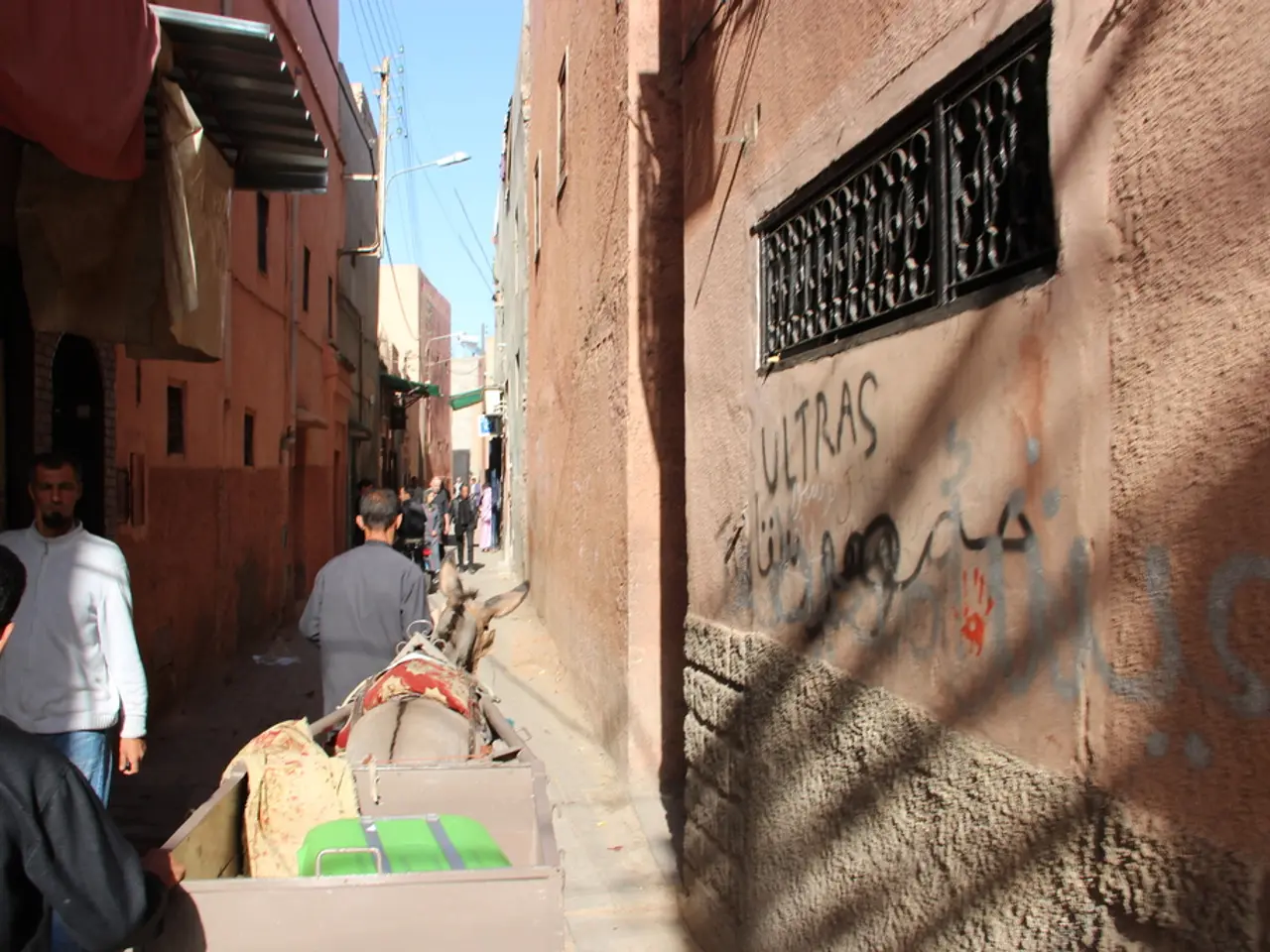Military Ambition in Gaza: Exploring Potential Implications
The German government has taken a significant step, halting exports of military goods that could be used in the Gaza conflict following the Security Cabinet's decision. This move comes as Israel prepares for an expanded military operation in the Gaza Strip, a decision that is expected to have far-reaching impacts on the region.
The humanitarian situation in the Gaza Strip is already dire, with the area largely in ruins and misery. The UN has described the situation as catastrophic, with a risk of famine. The planned operation, aimed at seizing and occupying Gaza City, could displace up to 800,000 civilians, many of whom have already been displaced multiple times. This massive displacement could lead to increased casualties, humanitarian hardship, and potential starvation, injury, and death among civilians.
The operation puts hostages held by Hamas at extreme risk. About 20 are believed alive, with 30 deceased hostages also held. Families have condemned the expansion as a potential death sentence for the hostages trapped in combat zones. The intensified fighting threatens to increase civilian suffering and complicate humanitarian relief efforts, with the UN and other actors stressing the need to facilitate humanitarian operations and protect civilians under international law.
International condemnation of Israel's actions is strong. Multiple countries and the UN warn that the plan risks igniting “another horrific chapter” of violence and undermining prospects for a two-State solution, which is widely seen as the only viable path to lasting peace. The conflict’s escalation could entrench hostility, prolong instability in Israel-Palestine, and impact broader Middle East relations.
Criticism of Israel's actions has increased significantly internationally, with some countries considering imposing sanctions on Israel. The British Prime Minister, Keir Starmer, has urged Israel to reconsider its decision to escalate, stating that it will not contribute to the end of the conflict or the release of the hostages. The EU Commission President, Ursula von der Leyen, has also called on Israel to question a further military escalation in the Gaza Strip.
The potential conquest of further areas in the Gaza Strip has sparked fears among the Palestinian population of a new wave of flight and expulsion, similar to those during the wars surrounding Israel's establishment in 1948 and the Six-Day War in 1967. Residents of the city of Gaza are expected to be evacuated to refugee camps in the center of the Gaza Strip, which are already overcrowded and have dangerous hygienic and health conditions.
Israel's military currently controls around 75% of the Gaza Strip's territory, and the conquest of the city of Gaza could lead to the flight of many more people. Family members of the hostages have spoken out against military rescue attempts and instead called for a settlement to end the war. The shock in society over fallen soldiers this year has already been great, and further losses on the Israeli side could further undermine support for the war.
Israel's Prime Minister, Benjamin Netanyahu, has stated that Israel aims to take control of the entire Gaza Strip but not to permanently occupy it, with the goal of liberating the area from Hamas and eventually handing it over to other forces. However, this plan risks serious violations of international law, further destabilization, and prolonged regional insecurity. The conflict’s escalation could entrench hostility, prolong instability in Israel-Palestine, and impact broader Middle East relations. Calls for ceasefire, hostage release, and renewed diplomatic efforts reflect the urgency to prevent wider escalation.
War-and-conflicts in the Gaza Strip continue to escalate under Israel's proposed military operation, with the United Nations warning of potential starvation, injury, and death among civilians, as well as an increased risk for the hostages held by Hamas. The policy-and-legislation landscape is shifting as international condemnation mounts, with some countries considering sanctions against Israel due to the operation's perceived violations of international law and potential threat to the general news conditions in the region.







